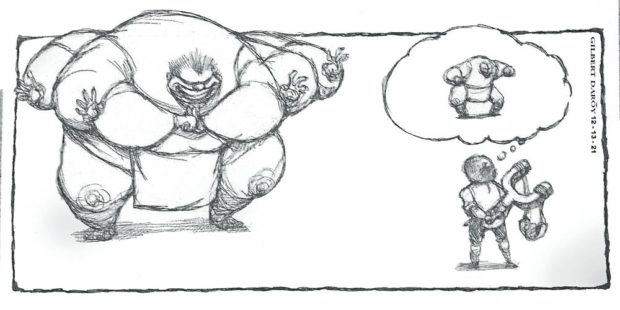Gargantuan tasks ahead
The unprecedented cost of addressing the COVID-19 pandemic has heavily burdened not only the Duterte administration, but also the incoming president to be elected in the May 2022 elections. For starters, the next administration will have the painful task of dealing with a huge pile of debt. The Philippines has borrowed P1.15 trillion to finance the prolonged fight against the pandemic.
The Department of Finance has warned that while the COVID-19-related foreign loans totaled $22.58 billion, the total financial cost of the pandemic so far — including interest payments — actually amounted to $28.91 billion or P1.47 trillion. The national government’s outstanding debt, on the other hand, will further climb to a record P13.42 trillion by end-2022 from P11.73 trillion by the end of this year.
Article continues after this advertisementThis increase in borrowings has jacked up the Philippines’ debt-to-gross domestic product (GDP) ratio, which reflects an economy’s ability to repay its obligations, to 54.6 percent in 2020 from a record-low 39.6 percent in 2019. As of end-September 2021, this has climbed to a 16-year high of 63.1 percent, above the 60-percent threshold deemed by credit-rating agencies as manageable. The debt ratio is projected to be at 59.1 percent by end-2021, and inch up to 60.8 percent in 2022. The share of debt to the economy is seen to ease to 60.7 percent in 2023 and 59.7 percent in 2024.
Like any other debt, the solution is to generate more revenues—either through new or higher taxes, or by selling government assets. Increasing tax and non-tax income to meet the higher financing cost of repaying debts will be the biggest challenge to the incoming presidency, as business activity is expected to remain weak and pandemic-related expenses such as financial assistance to the poor will increase next year.
The debt crunch is just one major problem to be faced by the incoming administration. Finance Secretary Carlos Dominguez III, head of Mr. Duterte’s economic team, recently gave a somber picture of what the next president can also expect. High inflation, worsening income inequality, and climate change, he said, are three other crucial issues that need to be addressed by the succeeding government so that the economy can return to a healthy state.
Article continues after this advertisementThe next presidency needs “to deal with the issue of inflation brought about by shortages around the world,” Dominguez said. Headline inflation in the Philippines already breached the government’s manageable target range of 2-4 percent due to expensive food. “Inflation is being imported,” said the finance chief, noting that faster inflation is being driven by higher oil prices and transportation and logistics costs due to the pandemic. Pent-up demand following the recovery of many economies around the world has also led to shortages of goods, from microchips to cars. “So how will the next administration deal with inflation is very crucial,” he said.
The third challenge is the need to manage the inequalities exacerbated by the pandemic. A World Bank report earlier said that the most vulnerable sectors—the poor, women, and schoolchildren—will take even longer to recover from the economic slump. Dominguez said that while the administration was successful in its first three years in reducing poverty, it has gone back up.
The next administration also needs to “address climate change without stretching the fiscal space of the country,” according to the finance chief. Considered to be among the most vulnerable countries to climate change, the Philippines ambitiously pledged to slash greenhouse gas emissions by 75 percent over the next 10 years under the Paris Agreement. Dominguez headed the Philippine delegation to the recently concluded 26th session of the United Nations Climate Change Conference of Parties in Glasgow, United Kingdom.
To avert a debt-induced economic crisis, former finance secretary Roberto de Ocampo, writing in a commentary in this paper last Saturday, pointed to Socioeconomic Planning Secretary Karl Chua’s recently unveiled 10-point policy agenda, which is anchored on accepting COVID-19 as an endemic presence like the ordinary flu and bats for providing the necessary space for a wider and more rapid economic resurgence. Describing Chua’s recommendations as “thorough and well thought out” and capable of avoiding the dreadful combination of runaway borrowings and anemic GDP growth, De Ocampo suggested that “competing presidential tandems would be well advised to embrace this nonpartisan paper across party lines, lest winners find themselves with a pyrrhic victory.”
There will be no easy way to address the gargantuan tasks up ahead. Given the deep scarring caused by the pandemic and the economic slump, the next administration will have to forgo a “honeymoon” lap and put its nose to the grindstone from day one.

















